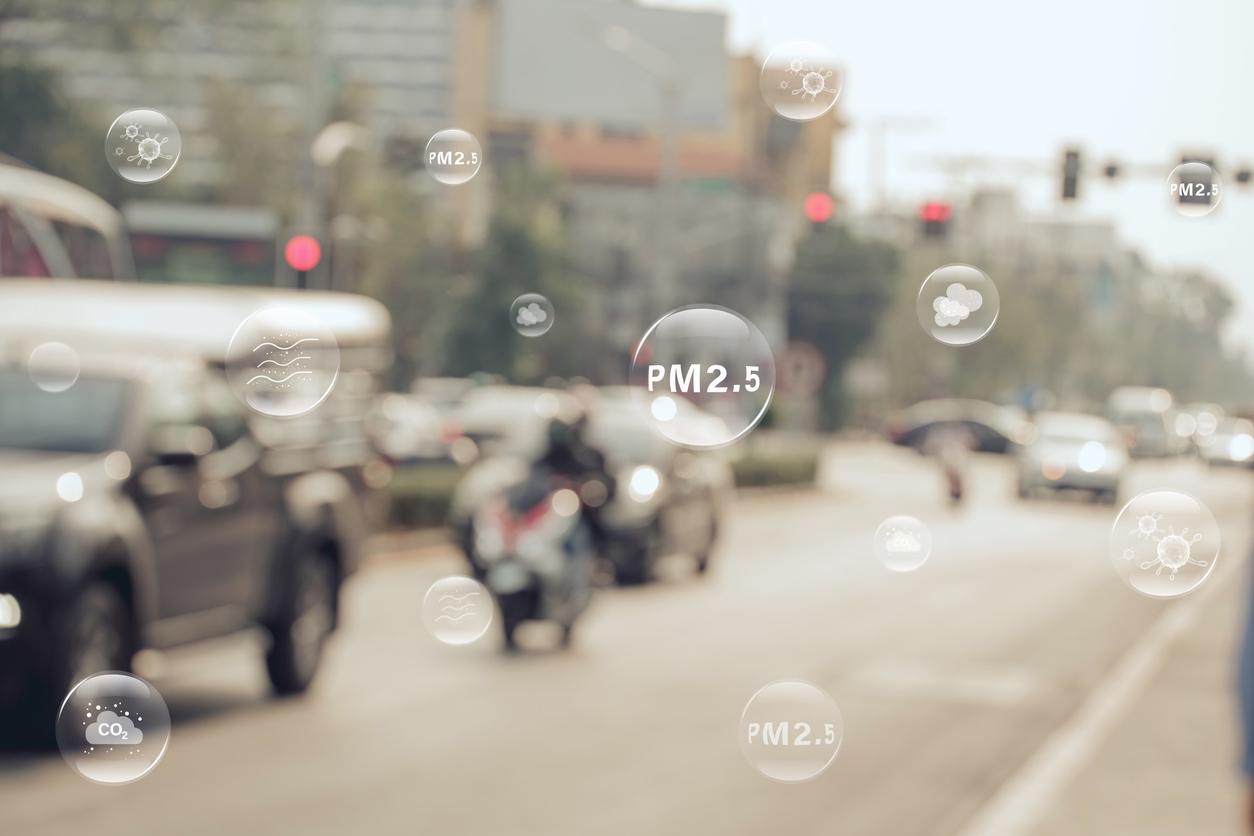A study conducted by French researchers shows that air pollution, and in particular fine particle pollution, would increase the duration of the phase preceding ovulation. This can affect a couple’s chances of conceiving a child.

Several studies had already shown that air pollution, in particular that of nitrogen dioxide, responsible for the formation of fine particles in the ambient air, had repercussions on the health of the mother and that of her future child. Risk of pre-eclampsia in pregnant women, low weight of the baby at birth, degraded functioning of his lungs, neuro-developmental disorders or risk of high blood pressure are all sequelae pointed out by various scientific works.
A new study, led by led by Inserm researcher Remy Slama at the Institute for Advanced Biosciences and published in Environmental Pollutiondemonstrates that this fine particle pollution also has negative effects on female fertility by altering the menstrual cycle.
An increase in duration of the follicular phase
What are the effects of fine particle pollution on the menstrual cycle? To determine this, the researchers carried out hormonal assays in the urine of 184 female volunteers during a complete menstrual cycle. They also measured the levels of air pollution to which they were exposed in the month before the start of their cycle, including fine particles PM10, i.e. particles smaller than 10 micrometers, and the concentration of carbon dioxide. nitrogen.
They then observed an association between the concentration of fine particles in the air and the duration of the follicular phase of the cycle, that is to say the phase preceding ovulation. This increased on average by 0.7 days for each average increase of 10 micrograms per cubic meter of nitrogen dioxide concentration. Each average increase in fine particles per cubic meter of concentration lengthens the follicular phase of the cycle by an average of 1.6 days. The length of the luteal phase, which follows ovulation, does not increase, however, nor does the total length of the menstrual cycle.
influence on fertility
“These results are consistent with more fundamental data suggesting that air pollution can disrupt the axis that controls the menstrual cycle, and stress hormones like cortisol, which can influence it,” says researcher Rémy Slama in a statement.
But the latter prefers to warn: “These are original works that generate a new hypothesis. It will probably take some time to refute or confirm it on larger population samples, given the cost and effort involved in such studies”. However, the authors of the work say that the conclusions they reached confirm the results of “a few studies that suggested that exposure of adults to air pollutants could have an impact on fertility.”
.

















